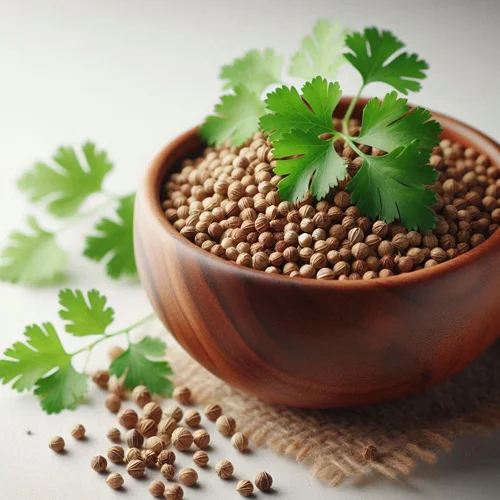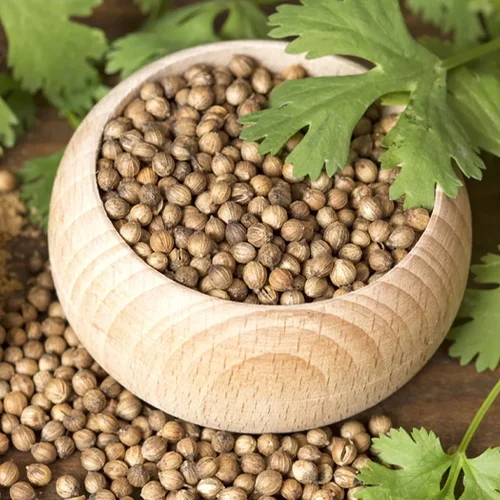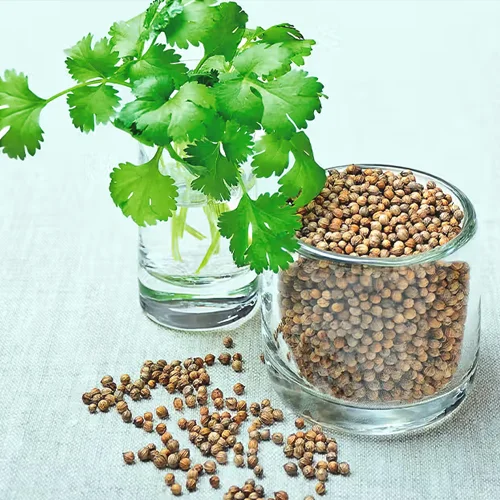


| English Common Name | Coriander |
| Botanical Name | Coriandrum sativum L. |
| Family Name | Apiaceae |
| Part used as Spice | Leaf and seed |
| Origin | India |
| Type | Machine Cleaned / Sortex Cleaned / Extra Bold |
| Purity | 98.0% Minimum and 99.5% Maximum |
| Variety | Eagle, Parrot and Scooter |
| Flavour | Warm, citrusy, and slightly sweet flavour |
| Volatile Oil | 0.3% Minimum |
| Moisture | 9.0% Maximum |
| Ash | 6.0% Maximum |
| Acid – Insoluble ash | Acid – Insoluble ash |
| Average Bulk Index (mg / 100 g) | 285 |
Description:
Coriander is an important spice crop having a prime position in flavouring food. The plant is a thin stemmed, small, bushy herb, 25 to 50 cm in height with many branches and umbels. Leaves are alternate, compound. The whole plant has a pleasant aroma. Inflorescence is a compound umbel comprises 5 smaller umbels. Fruit is globular, 3 to 4 mm diameter, when pressed break into two locules each having one seed. Fruit has delicate fragrance; seeds are pale white to light brown in colour.
There are two distinct morphological types, one erect and tall with a comparatively stronger main shoot and the other bushy with a relatively weaker main shoot and longer spreading branches.
History of Cumin:
The name “coriander” comes from the Greek word “koris,” which means a stink bug, likely referring to the strong aroma of cilantro leaves when bruised. The origins of coriander seeds can be traced back to the Mediterranean region and parts of Southern Europe, where they have been cultivated for both leaves and seeds.
Usage:
The young plant is used for flavouring and garnishing curries and soups. The fruits (seeds) are widely used as condiments with or without roasting in the preparation of curry powders, sausages and seasonings. It is an important ingredient in the manufacture of food flavourings, in bakery products, meat products, soda & syrups, puddings, candy preserves and liquors. In medicines it is used as a carminative, refrigerant, diuretic, and aphrodisiac. In household medicines, it is used against seasonal fever, stomach disorders, and nausea. Coriander oil and oleoresins are primarily used in seasonings for sausages and other meat products.
Medicinal Properties of Spices:
Carminative, diuretic, tonic, stimulant, stomachic, refrigerant, aphrodisiac, analgesic, anti-inflammatory.